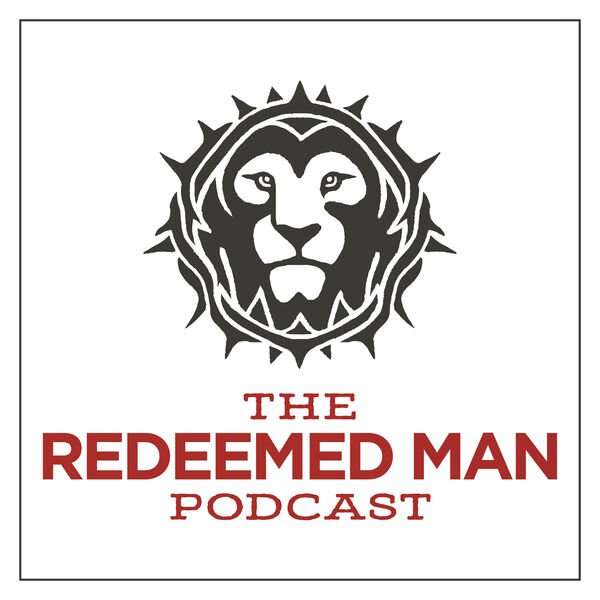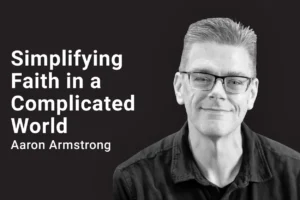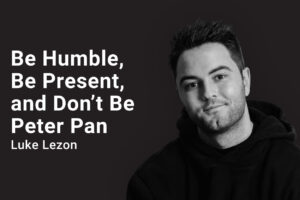Life on the Other Side of Comfortable

More About The Podcast
- About
- Show Notes
About The Podcast
At first, Grant Scarborough didn’t want to go to med school or return to his hometown. But Columbus, Georgia, proved to be the perfect place to build and grow a new kind of clinic. Half healthcare center, half mission, MercyMed offers hope and dignity to the city’s poorest citizens. This week, “Doc” Scarborough shares with Paul Amos his journey to becoming “the best-paid missionary in the United States…[and] the poorest-paid doctor in Columbus”.
Show Notes
Timestamps
0:00 — Intro
1:12 — The outstanding role models Grant had in his own family
6:29 — Grant’s reluctant journey to becoming a doctor and founding MercyMed
14:48 — The generosity that helped MercyMed grow
20:39 — Overcoming fears and resistance to healthcare in low-income communities
27:47 — Having spiritual conversations in a healthcare environment
32:30 — Spreading MercyMed’s model and culture to other places
38:18 — MercyMed’s urban farm
41:42 — The impact MercyMed is making on Grant’s own family
Discussion
- What kind of role models or examples did your parents provide you in terms of helping people in need? Were they generally generous like Grant’s parents were, or were they more likely to “look out for number one”? If it’s the latter, who was your role model for generosity and sacrifice when you were young? How did these attitudes shape you as a young man and as an adult?
- Have you ever felt a calling toward a job, a line of work, or a major life change that you were reluctant to answer? Looking back, could God have been the one giving you that call? What was causing your hesitation, and what happened when you eventually accepted that calling?
- “Real life,” Grant says, “begins on the other side of being comfortable.” What’s the most “uncomfortable” circumstance you’ve ever experienced as an adult? It could be a new job (or a lost job), a volunteer project, a new city, something family-related . . . Were you in that circumstance by choice, or was it more a case of life “forcing” it on you? What did you gain from the experience that you wouldn’t have gained by staying “comfortable,” and did you see God at work in any of it?
- In general, how do you view going to the doctor or other healthcare provider? Positively, as a chance to improve your health? Neutrally, as something you just have to do as part of adult life? Or negatively, as something to be feared and resisted? What have you experienced in your life that makes you feel this way?
- Looking back on the individuals who have played significant roles in your spiritual journey, were you resistant at first to hear what they had to say? Did any of them give you the “thousand little touches” Grant speaks of, not bombarding you with an overbearing or preachy message, but showing little acts of kindness and concern that added up over time? What kind of difference did that make in your spiritual growth?
- Describe your current job or career field. In what ways could you perform that job to honor God? In what ways does that job provide help or service to others?
- Let’s say someone came to you with an unusual job offer. In this new job, you’d utilize all the same skills and talents that you use in your present position; it would pay 20% less than what you’re making now, but you’d be providing help for people in need, and you’d go home every evening feeling fulfilled. Would you take that job? Why or why not?
- In general, is your current spiritual life inward-facing or outward-facing? That is to say, does it involve a great deal of inward prayer or meditation, but not much in the way of outward action in service to others? If so, what are some things you could start doing right away to change that?
Additional Resources:
Search Podcasts
Enjoyed This Episode?
Discover more inspiring episodes of The Redeemed Man Podcast wherever you tune in!
Share This Podcast
Sign up for updates
When you sign up for this mailing list, you’ll receive regular updates for The Redeemed.
More From The Redeemed Man Podcast

Simplifying Faith in a Complicated World
Ministry leader and author Aaron Armstrong talks about the bumps in the road he experienced early in his faith journey, and how he’s trying to help others navigate the same challenges.

Be Humble, Be Present, and Don’t Be Peter Pan
Luke Lezon, the lead pastor at Lifebridge Church in Orlando, talks about his unusual path to church leadership and how it’s shaped his life.

What God Has Been Building Among Us
The Redeemed welcomes a new year by looking back at the developments, guests, and stories that made a big impact in 2025.









